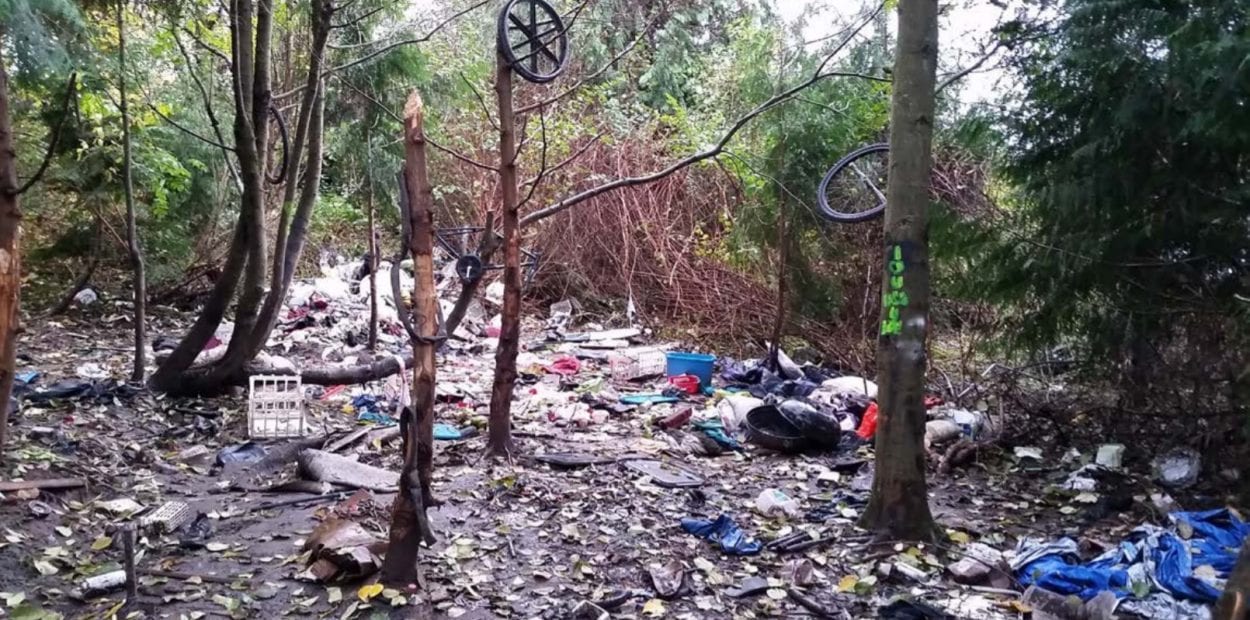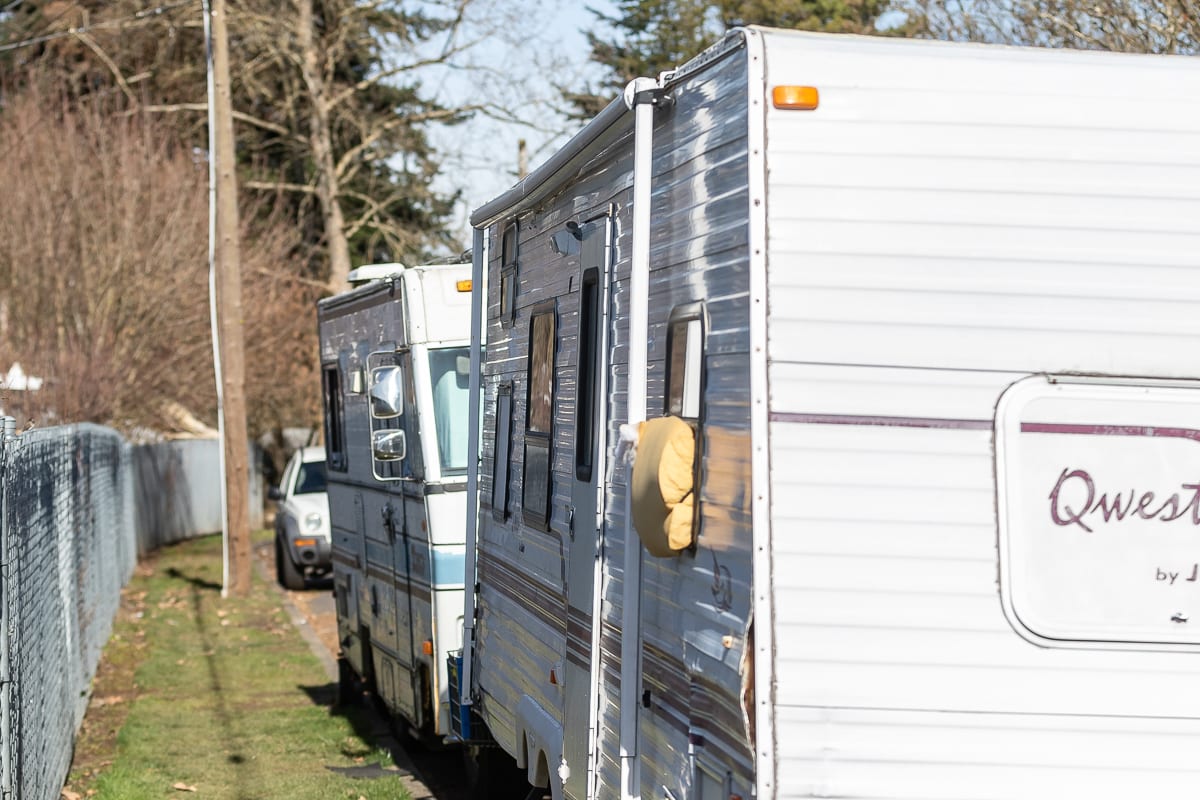County officials are discussing an official policy regarding encampments in public spaces
CLARK COUNTY — In 2018, there were well over 3,000 households in Clark County that experienced homelessness. A total of 2,900 people expressed a desire for some sort of shelter. But the county has just 170 shelter beds currently available, with the number growing to around 300 during the Winter.

Those stark numbers were presented during a recent Clark County Council work session on homeless encampments and what should be done about them. County staff have spent the past couple of years working to create a policy for how to handle homeless camps on public land.
The issue has been further complicated by legal decisions in recent years. A 2014 lawsuit against Clark County alleged that workers were unjustly disposing of personal possessions when cleaning up homeless camps. The county lost the case, leading to the current policy in which camps receive a 72-hour notice of any cleanup, and any personal possessions taken must be held for 30 days before being disposed of. Vancouver holds onto items for 60 days.
A 2018 case in Boise, Idaho determined that any ordinance prohibiting homeless encampments violates the Eighth Amendment against cruel and unusual punishment. If no alternative shelter is available, the court ruled, it was illegal to criminalize someone for sleeping on public property.
“In essence, jurisdictions cannot criminalize homelessness,” said Kevin Tyler, Clark County lands manager, during the work session. “Court also ruled that shelter space is not considered available if homeless individuals are required to participate in religious activities in exchange for that shelter.”
Asked how many of the items held after a camp cleanup were eventually claimed, Tyler said they haven’t kept close track, but generally very little was picked up. Where items end up currently depends on who’s doing the cleanup. The county uses inmate work crews, as well as Public Works crews and a number of outreach groups. Sometimes items are handed off to charities like Friends of the Carpenter, so it’s difficult to keep track of how many items are claimed by their owners.
County Chair Eileen Quiring and District 4 Councilor Gary Medvigy both noted that homeless campers have increasingly set up outside the county building.
“They had the tent right up against the door, and they were laying against the door,” said Medvigy, who noted that security offered to move the campers, but he talked with them himself and eventually got them to move.
Bill Richardson, a deputy prosecuting attorney with the county, noted that the court rulings don’t prohibit having an ordinance against camping in public spaces or on public land, but the county can’t have a criminal penalty against doing so.
“If you create an ordinance or a law that proposes or makes an option, confining a person for being found out in public, that would be a criminal sanction,” said Richardson. “If you levy a fine against them that, quite frankly, could be punishable by confinement if they don’t pay it, that’s a criminal sanction.”
Richardson noted that most homeless individuals lack the capacity to pay a fine, making it largely pointless to issue one.
“The sheriff’s office isn’t arresting people for not being gone after 72 hours,” added Tyler.
Michael Torres, community housing and development manager, said the notion that most people are homeless by choice is incorrect.
“Is there shelter available, is there an outreach team immediately available to go attend to this individual or this household’s needs?” said Richardson. “Even if those circumstances line up, is there treatment, is there assistance, is there a rental, is there housing available for those individuals? Odds are, no.”
Medvigy said aside from reaching a final policy on homeless encampments, he would like to see work done on figuring out exactly what resources the county would need to address the situation.
“How do we put a program in place where we can protect the public, where we can provide for health and safety in the community, and compassionately really give help to people that need it?” asked Medvigy, noting that millions of dollars is spent annually on services for the homeless.
“We need to identify what we need in the way of mental health, drug addiction, social workers, outreach workers, so we can get that population help. Having no barriers and providing showers and food only prolongs their misery,” said Medvigy. “That’s not the compassionate, empathetic thing to do.”

Councilor Julie Olson noted that while Torres’ numbers of 3,000-plus people experiencing homelessness in Clark County is accurate, it doesn’t reflect how many people are homeless on a given day.
“In my view, (it) would be closer to 600 (shelter beds) for trying to comply andI just want to make sure that we’re really clear about what we’re talking about,” said Olson. “(People) that are on the street, or encampments, and not bouncing from somebody’s couch to another person’s couch. Because, while that’s important, that’s not what we’re talking about.”
Ultimately, the county instructed staff to move toward a policy that would make blocking the entrance or exit of a building illegal, as well as blocking public sidewalks with tents or sleeping bags, and expanding the public right of way where camping would be illegal. The county would also ban daytime camping, but allow overnight camping on public land as long as there are insufficient shelter beds.
Olson also asked that language be included regarding RVs being used as permanent housing. Her rural district, which includes much of northwest Clark County, has been especially hard hit by derelict RVs and campers living in wooded areas.




